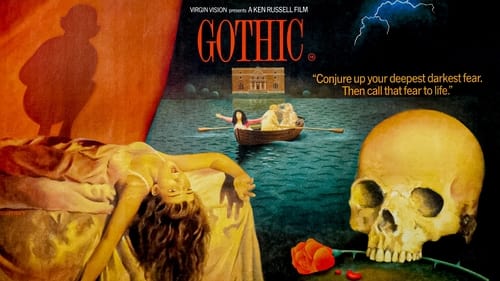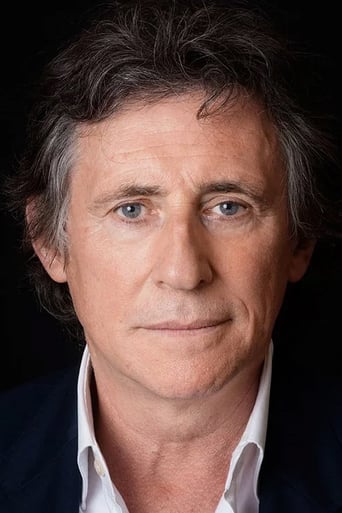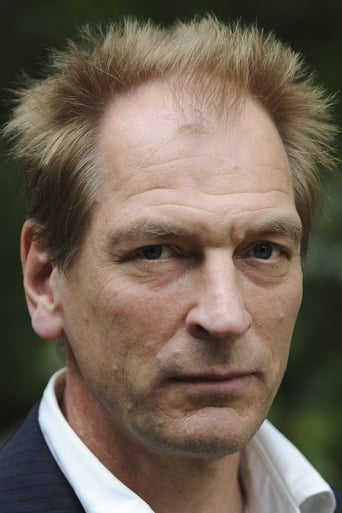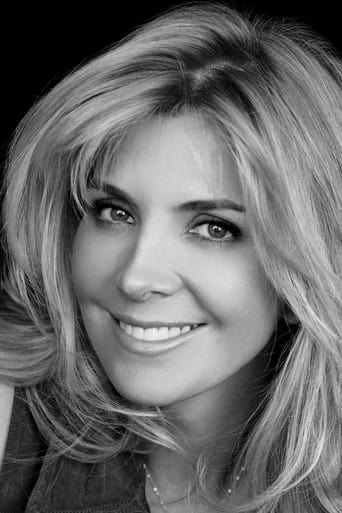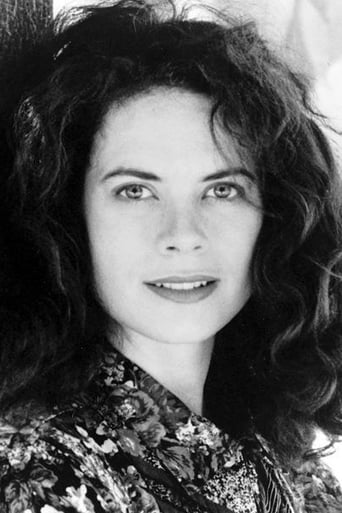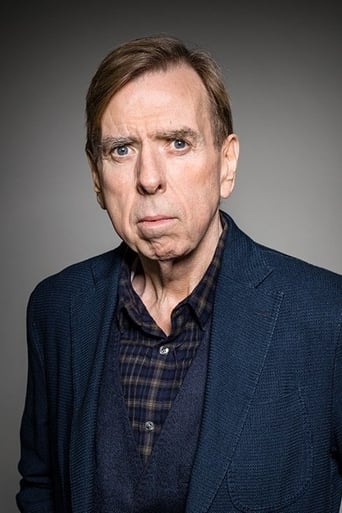Wordiezett
So much average
Smartorhypo
Highly Overrated But Still Good
AshUnow
This is a small, humorous movie in some ways, but it has a huge heart. What a nice experience.
Billy Ollie
Through painfully honest and emotional moments, the movie becomes irresistibly relatable
James Nason
This ranks as one of the worst films I've ever had the misfortune to watch.The subject matter is something I find fascinating, a period when the two greatest Gothic characters were conceived and this is the best they could come up with to bring this time to life?! I thought more of Natasha Richardson and Timothy Spall than to stoop as low as productions of such poor quality.If a subject interests you enough that you would make a film about it why would you do such a horrendous job of it?! The first thing you notice is how terrible the soundtrack is. Even by the standards of 1986 the music sounds like cheap, out-of-date electronics all of which fail to capture any mood in the film.It soon follows that you notice how terrible the performances of the 'actors' are with everyone but Richardson over-acting and 'hamming' up their parts, making them all seem overly eccentric.If you have the chance to watch this film don't bother! Read Mary Shelley's 'Frankenstein' in stead. It'll take a lot longer but will be a far less waste of your time than this film.
jessegehrig
Should have been a comedy poking fun at the British class system, instead it's an all too earnest "film" about "important" historical personages. Tries to be dark and mysterious but the movie only achieves hokey and lame. Tries to invoke the heady words wrote by Byron and Shelley but the dialog comes off forced and overly fanciful. All the acting is so operatic, unnatural, rather than adding to character it makes everyone's performance appear hammy. The movie tries to display the free-love orgies Lord Byron and his pals supposedly engaged in, but tragically becomes the funniest part of the film. Just a lot of silly talk, uninspired nudity, and junior-high school haunted house quality horror.
Glen McCulla
Ken Russell's "Gothic" has a title both redolent of itself and the literary genre whose birth it charts. The renowned English poet Percy Bysshe Shelley (Julia Sands), his soon-to-be wife Mary Godwin (Natasha Richardson), and Mary's highly-strung stepsister Claire Clairmont (Miriam Cyr) travel to the Villa Diodati in Switzerland to be house-guests of the infamous exile Lord Byron (Gabriel Byrne) and his fawning physician Dr John Polidori (Timothy Spall). After an evening of excess imbibing laudanum and reading ghost stories to combat the boredom due to being kept inside by a lightning storm, all five denizens of this house of horrors (the Universal-esque title "House of Byron" would have been just as apt) must contend with nightmarish hallucinations and come face to face with their innermost terrors.As a literary biopic, viewers may find Russell's trademark auteur-ial flourishes offputting, but they are well suited to the subject matter and the larger than life grotesqueries of the characters themselves. Gabriel Byrne portrays the club-footed and lascivious Byron with great relish, and is reminiscent of the gentlemen who essayed the role in the opening prologue to "The Bride of Frankenstein". Spall is twitchy and nervy as Polidori, barely suppressing his homosexual lust for his devilish master, and conflicted with the Catholic upbringing that teaches him such feelings are evil. Polidori would come to chart his leanings, and his tortured feelings for Byron, in "The Vampyre": in which the Western world's first literary bloodsucker Lord Ruthven is a thinly-veiled portrait of the poet.Julian Sands (the "Warlock" himself!) and Miriam Cyr give a good acquittal of themselves as a soppy and foppish Shelley and the hysterical Claire respectively, but the showpiece of the film is in my opinion the performance of the late Natasha Richardson as the nascent Mary Shelley, whose nightmares of her stillborn child and yearning to bring it back to life give birth (pun intended) to the legend of "Frankenstein". The sequence in which Mary sees a grotesque version of herself - looking spookily like Erica Blanc's succubus from "The Devil's Nightmare" - nursing a baby's skeleton in a crib stayed with me for a long, long time (perhaps i shouldn't have been watching this at eight years old..?).
george karpouzas
I have read some, quite of lot, of the viewers' critiques before watching this movie again, from start to end, and form a final opinion. I did see the movie, which I have seen whole or in fragments previous times and some things became clearer to me.You have to know enough about the background of the story and the heroes to understand the plot. Otherwise you will think that they are a bunch of raving maniacs. I happened to be interested in the Romantics, thus I knew a lot about the stories generated from the time spent in the famous villa. There the most famous novel of Mary Shelley, Frankenstein was conceived. I had read the novel in the English language with a dense introduction that was describing the preoccupations of Shelley's circle, the infatuation of the age with the newly discovered electricity and the belief that it could generate life. Also I knew about the intricate relationships of the characters involved.If someone without this background tries to understand what the movie is about, he will be disappointed unless he has such a fine artistic sensibility and general education that can fill the gaps of the ignorance of the facts and emotions surrounding this coterie of quite exceptional people.All the information relevant is contained in the dialogues and images but unless you knew that before you would be unable to make the relevant connections or understand why the characters behave in such a manner, why and what they speak about and the whole purpose of it all.The actors are good I think for their roles. Gabriel Byrne has the latent evil touch and subdued lasciviousness that we attribute to Byron, Julian Sands is truly, the "Mad Shelley", as he was called by his fellow schoolboys when at Eton, Timothy Spall gives a grotesque image of Dr. Polidori, which is perhaps unavoidable given the fact that tradition has so much focused to the personalities of the two great literary men that his reputation has been eclipsed, therefore a normal appraisal is perhaps impossible. Myriam Cyr as Claire Clermont follows the conventional interpretation of her character as a sensuous girl attracted by the fame of the poets and lacking herself the depth and gravitas of Mary Shelley. Natasha Richardson is the most normal character among the protagonists and has a fine sequence of scenes, near the end, where she sees as if a prophetess the ensuing fate of many of the characters, which latter developments validate. The other point I wanted to make about Claire Clairmont is that when she is not portrayed as a slut with cultural pretensions, she is shown in a condition of animalistic primitivism or as possessed by demons. Dr. Polidori is also a buffoonish homosexual who eyes both the great poets. It is clear that because Claire Clairmont and Dr. Polidori were the ones of the company that did not achieve literary fame, because the were not the "literary monuments" the other two and to a lesser extent Mary Shelley later became, they have to suffer in the hands of posterity when a director has to cast their roles so as to fill the required quorum along with the "great ones". Not only life but also posthumous reputation is unfair....Sound and visual effects are adequate and achieve surprise and fear, especially the first time the movie is watched. A lot of demons and related creatures occupy the screen. One though must not blame the director for overdoing it because those elements formed the staple iconography of the so called "Gothic" atmosphere and the diaries of the heroes contain references to hallucinations and the like, perhaps because of drug taking, or just because the symbiosis of some of the most active and strong imaginations alive during that particular time.The best word that I can use to describe this movie is "uneven". It has good actors, it is supported by sound and scenic effects, it has costumes that look authentic but at times it becomes disgusting, chaotic, devoid of a real plot and radiates hysteria. There are attempts towards sexual explicitness, though by today's standards not so offensive; it must have been for the eighties though...I was interested in the movie because I am very interested in the Romantics. Otherwise it can be seen as a story of rich people indulging to their decadent appetites for sex, drugs, aimless philosophising and self-absorption, reminding one of a company of people devoted to Marquis de Sade's idea of pleasure(graphic illustrations of his books are page-turned by Mary). Mind you, if tabloids had existed during that time the story would have been a scoop. It might even hit YouTube. When famous people follow their fancies or get their kicks, it is always different from simple plebeians.... Apart from the literary fame of the characters, which in their lifetime was actually secured only by Byron, Shelley and even more Mary Shelley were to be vindicated by posterity; and Shelley was actually more famous-that is- notorious for his unconventional sexual mores, his atheism and his political radicalism, rather than for his verse, is this a story actually worthy to be made to a movie? I can not give a definite answer. Would such a story of drugs, free love (actually sex), hallucinations and sheer self-absorption be of interest to anyone? But of course it produced Frankenstein the most famous of Gothic novels …. I do not think that all this creativity was portrayed in the film. It focused more on the "bad, mad and dangerous to know" aspects of the characters. In that sense I do not think it does justice to what happened in the villa of Geneva and mainly to what was produced. Not all hedonists produce novels of enduring value. Stressing on the eccentric aspects of the lives of the characters the film has betrayed their literary significance and succumbed to sensationalism and cheap thrills.



